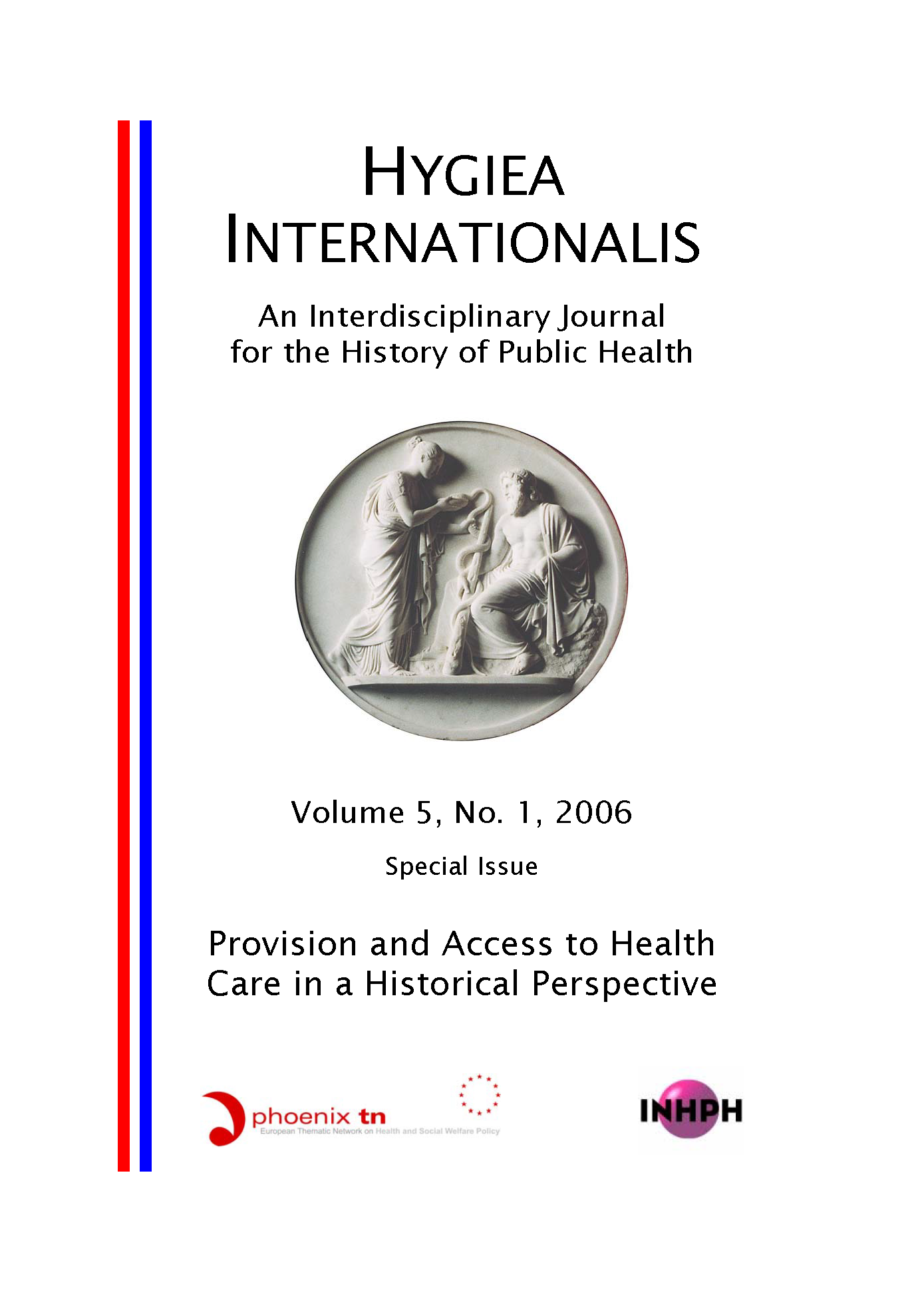The Poor and the Patient
Protestant Geneva in the Early Modern Period
DOI:
https://doi.org/10.3384/hygiea.1403-8668.065133Keywords:
Patient, poor, self-help, health, medical offer, neighbourhood, charityAbstract
Exploring the medical marketplace in early modern Geneva reveals an active town with a high density of both regular and irregular healers. The aim of this article is to assess just how ordinary and poor people used these services and to what extent medical commodities were available to the destitute. Using both court records, private and public sources, this article explores traces of practices highlighting the flexibility with which practitioners were admitted, the high tolerance to irregular practices and the continuity of the recourse to supernatural and catholic healing traditions by Protestants living within the city walls. Data on self-help and medical support offered by family, friends and neighbours is discussed, suggesting the importance of informal medical services in everyday life. Examples demonstrate that to some extent the poor managed to elect strategies and to control therapies, whereas expensive treatment was regularly offered by charities interested in getting the ill back to work.Downloads
Published
2006-11-17
How to Cite
Rieder, P. (2006). The Poor and the Patient: Protestant Geneva in the Early Modern Period. Hygiea Internationalis: An Interdisciplinary Journal for the History of Public Health, 5(1), 33–50. https://doi.org/10.3384/hygiea.1403-8668.065133
Issue
Section
Articles
License
Copyright (c) 2006 the Author(s)

This work is licensed under a Creative Commons Attribution-NonCommercial 4.0 International License.






